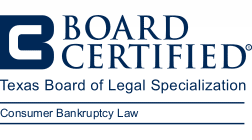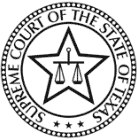What is Legally Considered Creditor Harassment?
 Debt can be stressful, but when creditors cross the line into harassment, it adds unnecessary anxiety to an already challenging situation. A Texas lawyer can help you understand what constitutes creditor harassment to help protect your rights and maintain peace of mind during financial difficulties.
Debt can be stressful, but when creditors cross the line into harassment, it adds unnecessary anxiety to an already challenging situation. A Texas lawyer can help you understand what constitutes creditor harassment to help protect your rights and maintain peace of mind during financial difficulties.
What Creditor Harassment Legally Means
Creditor harassment occurs when debt collectors use unfair, deceptive, or abusive practices while attempting to collect a debt. The Fair Debt Collection Practices Act (FDCPA) sets boundaries and clear guidelines on what a debt collector can and cannot do legally. While this federal law primarily applies to third-party debt collectors, many states, including Texas, have laws that extend similar protections to original creditors as well.
Common Forms of Creditor Harassment
Recognizing creditor harassment is the first step in addressing it. Here are some actions that are legally considered harassment:
-
Excessive communication: Repeatedly calling you, especially at inconvenient times such as before 8 a.m. or after 9 p.m.
-
Threats or intimidation: Using violent or obscene language, or threatening harm to you, your reputation, or your property.
-
False statements: Lying about the amount you owe, claiming to be an attorney or government representative when they are not, or threatening actions they cannot legally take.
-
Disclosure of your debt to others: Do not discuss your debt with anyone other than you, your spouse, or your attorney without your permission
-
Unfair practices: Depositing post-dated checks before the date, contacting you at work after being told not to, or attempting to collect fees not permitted by your original agreement or by law.
Legal Protections and Your Rights
The law provides you with specific rights to combat creditor harassment:
-
You can request that a debt collector cease all communication with you. They must comply, though they may still inform you about specific actions, such as filing a lawsuit.
-
You have the right to dispute a debt and request validation. The debt collector must provide proof of the debt before continuing collection efforts.
-
You can specify how and when a debt collector may contact you, such as through written communication or at specific times.
Understanding these rights allows you to take action against harassment. If you believe a creditor has violated the law, you can:
-
Document all instances of harassment, including dates, times, and content of communications.
-
File a complaint with the Consumer Financial Protection Bureau (CFPB) or your state’s attorney general’s office.
-
Consider legal action against the debt collector for FDCPA or state law violations.
The Impact of Bankruptcy on Creditor Harassment
For many facing overwhelming debt, bankruptcy can provide a path to financial recovery and put an end to creditor harassment. An automatic stay goes into effect upon filing for bankruptcy, which prohibits most creditors from continuing collection efforts, including harassing communications.
Bankruptcy offers a fresh start and can help you regain control of your financial life. However, the decision to file should not be taken lightly. It can be a difficult legal process with long-term implications for your credit and financial future.
Reach Out to a Houston, TX Bankruptcy Lawyer
If you are experiencing creditor harassment or are considering bankruptcy as a solution to your financial struggles, you must understand your options and rights. A Galveston, TX bankruptcy attorney can provide guidance to make informed decisions about your financial future. Call The Fealy Law Firm, PC at 713-526-5220 to start with your free, no-obligation consultation.












